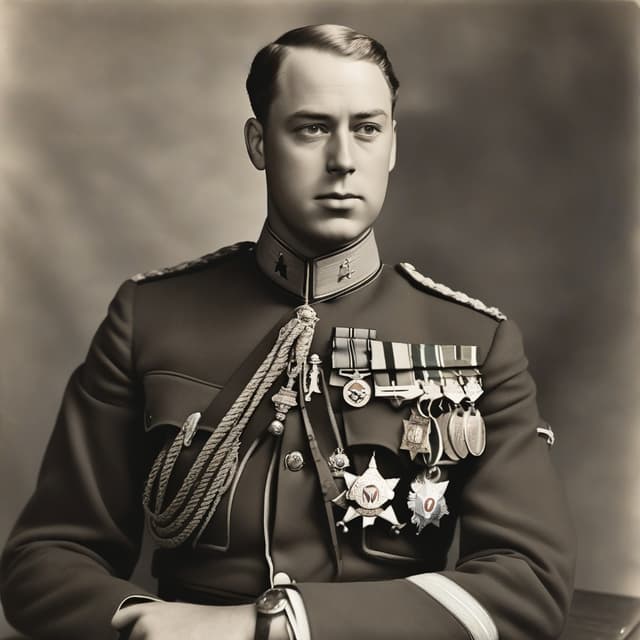
| Name | Prince George |
| Legacy | Oversaw the dissolution of the British Empire and its transformation into the Commonwealth of Nations |
| Relation | Younger brother of King Edward VIII |
| Occupation | Military commander • Politician • Prime Minister |
| Political Role | Served as Prime Minister of the United Kingdom from 1951 |
| Military Service | Acclaimed for heroic actions during World War II |
Prince George, Duke of York, was a member of the British Royal Family who served as the Prime Minister of the United Kingdom from 1951 to 1963. While he never ascended to the throne like his older brother, the future Edward VIII, George had a long and storied career as a military officer and statesman that left a lasting impact on the 20th century British Empire.
Born in 1895, George was the second son of the reigning monarch, King George V. As a young man, he pursued a military career, attending the Royal Naval College and eventually being commissioned as an officer in the Royal Navy in 1913. George distinguished himself during World War I, serving with valor on several fronts and earning a reputation as a skilled and courageous commander.
After the war, George continued to rise through the ranks of the military, establishing himself as one of the most respected and influential officers in the British Armed Forces. When his brother Edward VIII unexpectedly abdicated the throne in 1936, George's military fame and experience made him a natural choice to assume a senior defense role in the new reign of Elizabeth II.
At the outbreak of World War II in 1939, George was promptly appointed to the position of Chief of the Imperial General Staff, the professional head of the British Army. In this capacity, he played a crucial part in the Allied war effort, overseeing major campaigns in Europe and North Africa. George's strategic acumen, battlefield leadership, and ability to inspire troops made him a key figure in several pivotal Allied victories, including the Battle of Normandy and the Battle of the Bulge.
George's heroics during the war transformed him into a national icon in the United Kingdom, on par with figures like Winston Churchill. His fame and prestige only grew after the conflict ended, leading many to encourage him to enter politics and seek higher office.
In 1945, George took the advice of his supporters and resigned his military commission to run for a seat in the House of Commons. He was elected as a Conservative member and rapidly rose through the ranks, becoming Leader of the Opposition in 1948.
George's leadership skills and wartime reputation made him a natural choice to succeed the aging Clement Attlee as Prime Minister in 1951. As head of government, he navigated the decline of the British Empire, overseeing the gradual transition of the British Commonwealth into a more independent association of sovereign nations. While at times resisting the loss of imperial power, George was ultimately pragmatic in managing this historic shift.
Domestic policy during George's tenure focused on rebuilding the country's infrastructure and economy in the aftermath of the war. He championed the post-war welfare state, while also encouraging privatization and free market reforms. George's brand of "one-nation conservatism" helped the Conservative Party retain power throughout the 1950s.
George VI left office in 1963 at the age of 68, having served as Prime Minister for over a decade. He is remembered as a steady, principled leader who helped navigate Britain through a period of immense global change. Though he never wore the crown, George's military valor, political acumen, and tireless public service cemented his status as one of the most important figures in 20th century British history.
The Duke of York's legacy continues to be felt today, both in the evolution of the Commonwealth of Nations and in the enduring cultural reverence for his wartime exploits. He is widely regarded as one of the last great "imperial statesmen" who oversaw the gradual transformation of the British Empire into the modern Commonwealth. For this, as well as his inspirational leadership during the darkest days of World War II, George VI is rightly considered a towering historical figure.